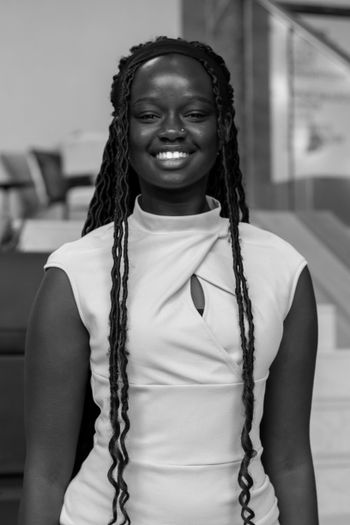Stanford prof blames 'white supremacy,' 'long backlash to the civil rights movement' for possible overturning of affirmative action
An article released by Stanford's Graduate School of Education asked professors why they believe race -based admissions are 'being challenged at this level.'
'I would have to say it’s part of our country’s history of white supremacy and a long backlash to the civil rights movement,' Stanford Professor Anthony Lising Antonio said.
Stanford professors Anthony Lising Antonio and Eujin Park blamed “white supremacy” and “a long backlash to the civil rights movement” for the U.S. Supreme Court’s potentially ending affirmative action in Students for Fair Admissions Inc. v. President and Fellows of Harvard College and Students for Fair Admissions Inc. v. University of North Carolina.
An article released by Stanford’s Graduate School of Education (GSE) begins by stating that the United States Supreme Court’s “conservative majority” is widely expected to “ban colleges and universities nationwide from considering race as one factor in reviewing and admitting applicants.”
[RELATED: Texas university claims affirmative action vital to national security, prepares for ban]
Both professors were asked why they believe race-based admissions are “being challenged at this level.”
“I would have to say it’s part of our country’s history of white supremacy and a long backlash to the civil rights movement,” Antonio replied. “The explicit effort to address societal racism, especially against African Americans, was flipped a long time ago to focus on white citizens’ rights being infringed upon as a form of ‘reverse racism.’”
The professors were also asked about the significance of both cases being filed by Asian Americans, to which Park directed it to a “model minority trope.”
“The ‘model minority’ trope supports the story we tell about ourselves as a nation that if you just work hard enough, you can move up the social ladder, Park said. “There’s this idea that our educational system is an egalitarian one based on merit, with Asian Americans held up as proof that the system works.”
Park added that this idea has been “weaponized to delegitimize critiques of the U.S. as a white supremacist and anti-Black society,” and that it is at work in these cases.
[RELATED: OPINION: I benefit from affirmative action, but it needs to end]
“The plaintiff is using the model minority stereotype to say this is unfair, it’s not American, it goes against our values of equal opportunity and hard work and fair play,” Park added. “It’s a strategy that allows opponents of affirmative action not only to evade the critique of racism, since Asian Americans are also people of color, but also to draw on racial stereotypes for their arguments.”
Antonio and Park are both associate professors at Stanford Graduate School of Education. Antonio’s research focuses on “equity issues in American higher education.” Park researches the negotiations of Asian Americans with race in educational institutions.
Earlier this week, Campus Reform Senior Editor Jared Gould said the mainstream media is wrong in saying that “affirmative action is on life support” because of these cases. “The ‘life support’ narrative is intended to throw people into a crazy whirlpool of believing that Black Americans are not going to get into college because conservative justices sit on the Court,” he said.
Campus Reform reached out to Antonio and Park, and the Stanford Graduate School of Education for comment. This article will be updated accordingly.

